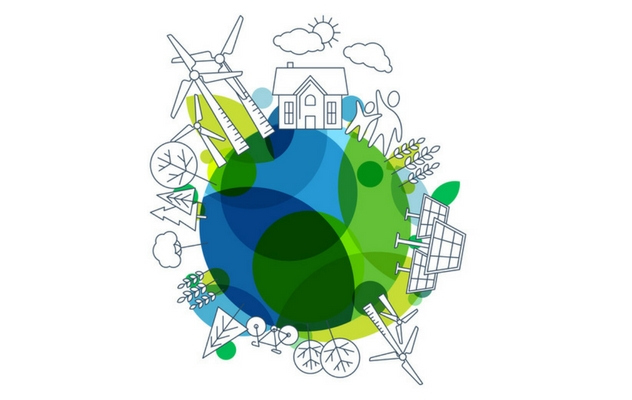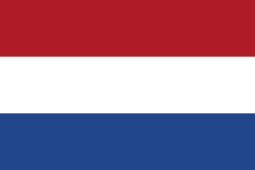The Comprehensive Guide to IB Dutch A Literature
Introduction
Welcome to the comprehensive guide to IB Dutch A Literature! The International Baccalaureate (IB) Dutch A Literature course aims to develop students' language proficiency and deepen their understanding and appreciation of Dutch literature. In this guide, we will provide you with a detailed overview of the IB Dutch A Literature course, its components, assessment criteria, and tips to excel in the course and succeed on the IB exam.
Overview of IB Dutch A Literature
The IB Dutch A Literature course is designed to develop students' language proficiency in Dutch and enhance their understanding and analysis of Dutch literary works. Through the study of a range of literary texts, students explore themes, literary techniques, and the cultural and historical contexts of Dutch literature.
Course Components
The IB Dutch A Literature course consists of three main components:
-
Language Acquisition: Students develop their language skills through the study of a variety of written and spoken texts, including literary works, essays, articles, and media. They engage in activities that focus on vocabulary expansion, grammar acquisition, and oral and written communication.
-
Literary Analysis: Students analyze a selection of Dutch literary works, examining themes, stylistic features, and the use of literary devices. They explore the cultural and historical contexts in which the texts were written and develop their skills in interpreting and evaluating literary works.
-
Text-World Connections: Students explore the connections between the literary texts and the real world, considering the social, cultural, and historical implications of the works. They develop an understanding of how literature reflects and shapes society.
Assessment Criteria
The IB Dutch A Literature course is assessed using the following criteria:
-
Language: Students demonstrate a high level of language proficiency, including accurate and appropriate use of vocabulary, grammar, and syntax. They communicate effectively in spoken and written forms.
-
Literary Analysis: Students demonstrate a deep understanding of literary texts, identifying and analyzing themes, literary techniques, and the cultural and historical contexts of the works. They provide insightful interpretations and evaluations of the texts.
-
Organization and Development: Students organize their ideas in a clear and coherent manner, structuring their responses effectively. They develop arguments and support them with evidence from the texts, demonstrating logical reasoning and critical thinking skills.
Language Acquisition
Language acquisition is a key component of the IB Dutch A Literature course. Here are some strategies to improve your language skills:
-
Read Widely: Read a variety of Dutch texts, including literary works, news articles, essays, and online resources. This will expose you to different writing styles, vocabulary, and cultural contexts.
-
Expand Vocabulary: Regularly learn new words and phrases, and actively use them in your spoken and written communication. Create flashcards or vocabulary lists to help with memorization.
-
Practice Writing: Write regularly in Dutch, focusing on different genres and text types. Experiment with different sentence structures, expressions, and writing styles to enhance your language proficiency.
-
Listen and Speak: Engage in conversations with native Dutch speakers, watch Dutch movies or TV shows, and listen to Dutch podcasts or music. This will improve your listening comprehension and speaking skills.
Literary Analysis
Literary analysis plays a significant role in the IB Dutch A Literature course. Here are some key aspects to consider when analyzing literary texts:
-
Textual Analysis: Analyze the literary techniques used in the text, such as imagery, symbolism, and narrative techniques. Examine how these techniques contribute to the overall meaning and impact of the work.
-
Character Analysis: Explore the motivations, relationships, and development of the characters in the text. Consider their roles in the narrative and how they contribute to the themes and messages conveyed by the author.
-
Theme Exploration: Identify the main themes and underlying messages in the text. Analyze how the author develops and conveys these themes through the use of plot, character, and language.
Preparing for the IB Exam
To prepare for the IB Dutch A Literature exam, consider the following strategies:
-
Practice Past Papers: Familiarize yourself with the format and style of the IB exam by practicing past papers. Pay attention to the time constraints and practice answering different types of questions.
-
Analyze Sample Essays: Study sample essays that exemplify strong analysis and organization. Pay attention to the structure, language use, and effective integration of textual evidence.
-
Engage in Discussions: Participate in class discussions and group activities that require critical thinking and analysis of literary texts. Engaging with different perspectives will broaden your understanding and enhance your analytical skills.
-
Seek Feedback: Share your written assignments and practice essays with your teacher or peers. Seek constructive feedback to identify areas for improvement and refine your analytical and writing skills.
Tips for Success
Here are some additional tips to excel in the IB Dutch A Literature course:
-
Read Extensively: Read a wide range of Dutch literary works, including both classical and contemporary texts. Immerse yourself in the richness and diversity of Dutch literature to deepen your understanding and appreciation.
-
Take Notes and Annotate: Take thorough notes while reading and annotate the texts with your thoughts, observations, and questions. This will help you engage with the texts on a deeper level and prepare for class discussions and assessments.
-
Practice Time Management: Develop effective time management skills to ensure you allocate sufficient time for reading, studying, and completing assignments. Create a study schedule and stick to it to stay organized and avoid last-minute stress.
-
Collaborate with Peers: Engage in group study sessions or form study groups with classmates. Collaborative learning can provide different perspectives, insights, and support throughout your IB journey.
FAQs
-
Are there any recommended Dutch literary works to read for the IB Dutch A Literature course? There is a wide range of Dutch literary works that can be explored, such as "Max Havelaar" by Multatuli, "The Discovery of Heaven" by Harry Mulisch, and "The Dinner" by Herman Koch. Consult your teacher or refer to IB recommended reading lists for more suggestions.
-
Is it necessary to be a native Dutch speaker to excel in the IB Dutch A Literature course? No, the course is designed to accommodate both native and non-native Dutch speakers. While a strong foundation in the Dutch language is beneficial, the focus of the course is on developing language proficiency and literary analysis skills.
-
Can I study Dutch A Literature if I am not fluent in Dutch? Yes, the IB Dutch A Literature course is designed to develop your language proficiency in Dutch while exploring Dutch literary works. With dedication and practice, you can enhance your language skills and succeed in the course.
Conclusion
The IB Dutch A Literature course offers a wonderful opportunity to deepen your language skills and explore the rich tradition of Dutch literature. By engaging with a variety of texts and developing your analytical and language proficiency, you can excel in the course and succeed on the IB exam. Embrace the challenges and enjoy the journey of exploring Dutch literature and culture.

 By
By


